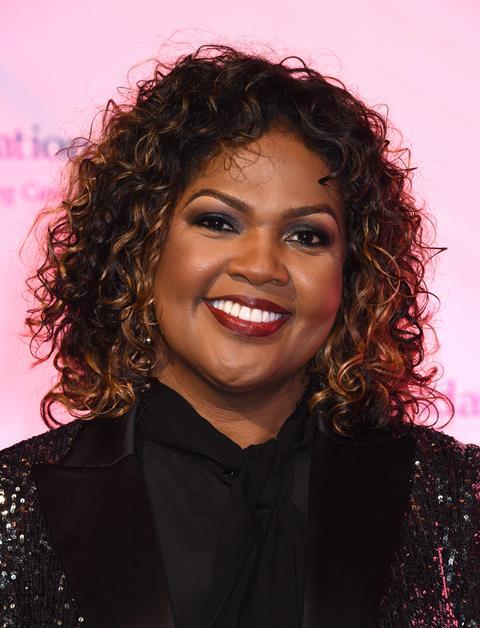This September, Gospel Music Heritage month takes on fresh meaning. Maxine Harrison explores the debate over gospel’s future after Maverick City Music’s Norman Gyamfi claimed traditional singers ‘sing too hard.

The idea for Gospel Music Heritage month was spearheaded by Alvin V. Williams in 2007. It celebrates the origins and impact of Gospel music. Although the event is generally known to have started in USA, it has undeniably had an international impact.
This year, Gospel Music Heritage month feels especially significant amid fresh debate about gospel’s relevance for today’s worshippers. The conversation reignited after Maverick City Music’s manager, Norman Gyamfi, suggested traditional gospel singers ‘sing too hard.’ Personally, I appreciate both the power of traditional gospel and the creativity of its modern expressions. With that in mind, here are my top five female gospel artists:
Kierra Sheard has carried her family’s gospel legacy into a new generation
1. Kierra Sheard
Daughter of the legendary Karen Clark Sheard of The Clark Sisters, Kierra Sheard has carried her family’s gospel legacy into a new generation with her powerhouse vocals. From worship anthems like Indescribable to gospel R&B on her album This Is Me, Kierra’s music is more than performance, it’s ministry. Her heartfelt ad-libs urge listeners to trust God through struggles, while the depth of her tone brings every lyric to life.
READ MORE: There is power in gospel music and its dark history offers lessons in perseverance
2. CeCe Winans
A living legend, CeCe Winans has graced stages around the world while building meaningful connections with secular artists, most notably the late Whitney Houston. From chart-toppers like ‘Up Where We Belong’ with her brother in BeBe & CeCe to solo hits such as ‘Goodness of God,’ her God-given voice has touched countless hearts. Guided by her faith, CeCe has openly declined opportunities that conflict with her convictions, like turning down Whitney Houston’s I’m Every Woman video due to its association with witchcraft, showing how ministry can shine even within a secular industry
3. Mary Mary
Mary Mary, the dynamic sister duo of the ’90s, brought gospel to both the mainstream and the church, with timeless hits like ‘Shackles’ still inspiring listeners today. The sisters have also pursued solo careers, with Erica Campbell marrying her music producer husband, Warryn, who has collaborated on Mary Mary’s albums, an example of how God works all things together for good (Romans 8:28).
READ MORE: Does gospel singer Kirk Franklin need to put more clothes on?
Annatoria (Blessing Chitapa), the youngest winner of The Voice UK, is making waves in gospel music with her unique blend of Afro-Gospel and Gospel R&B.
4. Annatoria
Annatoria (Blessing Chitapa), the youngest winner of The Voice UK, is making waves in gospel music with her unique blend of Afro-Gospel and Gospel R&B. Though she first rose to fame through a secular competition, she chose to dedicate her music entirely to God. At just 23, Annatoria inspires a younger generation, proving that God’s faithfulness empowers youth to rise above doubt and be heard (1 Timothy 4:12).
READ MORE: Can Christians listen to secular music? Whether mainstream chart music is OK for people of faith
5. Naomi Raine
Naomi Raine, part of the Christian music collective Maverick City, blends gospel and Contemporary Christian Music (CCM) to create a fresh, modern sound. From her solo tracks like The Story I’ll Tell to Maverick City’s Jireh, this approach has sparked debate about gospel’s relevance today. Yet the group’s cross-cultural reach, amplified during the pandemic, shows how gospel can evolve while still glorifying God, a reminder that musical genres grow, but faith remains at the heart. I think Naomi Raine and Maverick City are an example of how the evolution of gospel music should be celebrated, as all genres change over time, appealing to a newer generation. Ultimately, if they are still glorifying God at the heart of it, that is the main thing, right?




































No comments yet